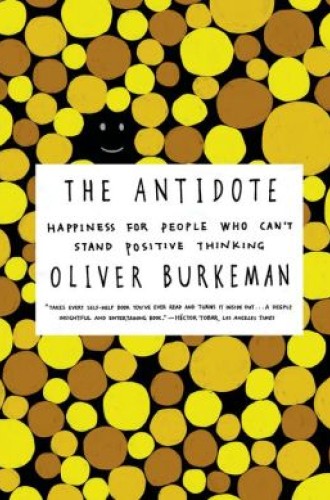The Antidote, by Oliver Burkeman
Happiness sells. So do books promising a way to help you be happier—especially when they carry the designation “Christian.” In her 2009 book Bright-Sided: How Positive Thinking Is Undermining America, social critic Barbara Ehrenreich traces the genealogy of positive thinking ideology back to religious Americans: for example, Norman Vincent Peale, author of the 1952 best seller The Power of Positive Thinking, and Mary Baker Eddy, the 19th-century founder of Christian Science. Positive psychology is now profitable quite apart from any religious associations, but one need only peruse Amazon best sellers in “Christian Living” to see that it remains popular in American Christianity.
Books promoting a Christianity driven and defined by positive thinking do not belong exclusively to the corpora of authors like Joel Osteen, Marianne Williamson and Joyce Meyer—all heavy on miracles and material blessings. Ann Voskamp, who describes herself as “just a farmer’s wife,” has created an impressive brand with her best-selling book One Thousand Gifts: A Dare to Live Fully Right Where You Are and its companion journals, DVDs, devotionals, photo-illustrated gift books and iPhone apps. Her teaching is simple: start a running list of little things you’re grateful for—“a high pile of freshly grated cheese,” “moonlight on pillows,” “new toothbrushes”—and identify them as gifts from God. Then even tragedies will be transformed into “seeing-through-to-God-places.”
If this sort of thinking leaves you cold, British journalist Oliver Burkeman’s The Antidote: Happiness for People Who Can’t Stand Positive Thinking will be for you just what the title promises. Burkeman introduces a different way to think about happiness: although happiness may be a “worthy target,” he writes, “aiming for it seems to reduce your chances of ever attaining it.”






